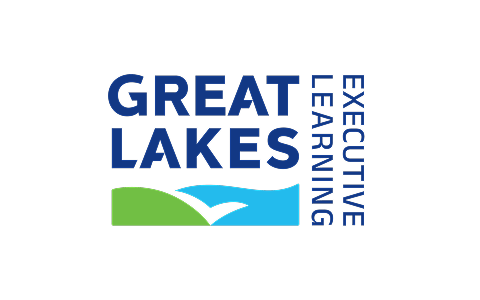CRM Free Course with Certificate
Customer Relationship Management
Join this CRM course to understand the working of a Customer Relationship Management process, its benefits, and examples. Get an idea of what customer relationship managers do.

Ratings
Level
Learning hours

Learners
Skills you will learn
About this course
Embark on your journey into Customer Relationship Management (CRM) with our certificate course! Explore the significance of CRM, delve into its core processes, and discover practical applications to build and nurture loyal customer bases.
What’s covered in this course?
- CRM Process: Gain insights into the core CRM processes that help businesses manage customer interactions for improved satisfaction and loyalty.
- Communication: Explore effective communication strategies within CRM frameworks to establish meaningful connections with customers.
- Customer Service: Discover the importance of excellent customer service in CRM for building strong relationships and fostering loyalty.
- Relationship Management: Learn the fundamentals of relationship management within CRM, including nurturing and maintaining long-term customer connections.
This course is ideal for:
- Professionals in sales, marketing, or customer service looking to build stronger relationships and drive growth.
- Entrepreneurs and business owners wanting to gain an edge in customer management.
- Anyone seeking a career in CRM or eager to enhance their customer-centric skills.
The course is designed to be clear, concise, and packed with actionable takeaways. At the end of the course, test your knowledge with a quiz and earn a completion certificate to proudly showcase your newfound expertise on CRM!
Are you ready to advance your career in Strategic Digital Marketing? This is your chance to shine. Grab this once-in-a-lifetime opportunity and take our Postgraduate Program in Strategic Digital Marketing today. Upskill yourself with the ongoing marketing trends to drive your business's growth.
Course Outline
This chapter will cover components like People Management, Lead Management, Sales Force Automation, Customer Service, Marketing, Work Flow Automation, Business Reporting & Analytics.
This chapter will explain what CRM is, why it is needed, and its end goal. It will also talk about some brief real-life examples to better grasp the concept of CRM.
CRM refers to companies’ strategies, practices, and technologies to manage and analyze their customers’ interactions. This module of the CRM course online will help you understand Customer Relationship Management better.
This chapter throws light on how CRM benefits the business. It will go on to talk about benefits like segmentation, customer retention, and more CRM provides to Sales & Marketing teams.
This chapter will have a step-by-step explanation of the CRM process. From identifying the target market, defining strategy, and customer handling to performance management software selection and re-engaging customers.
 UPGRADE
UPGRADE
Recommended university programs
Frequently Asked Questions
Will I receive a certificate upon completing this free course?
Is this course free?
Is the Customer Relationship Management course a certification course?
Will I get a certificate after completing this CRM course?
After enrolling in this course, you must successfully finish all the chapters, followed by the quiz, to receive a free online course completion certificate. After completing the quiz, the certificate will be available on your dashboard within 24 hours.
What are the steps to enroll in this course?
To enroll in CRM Course, follow the steps mentioned below:
1. Click on the “ENROL NOW” or "ENROL FOR FREE" button at the top right of the page.
2. Sign up and create an account to get started.
3. Once you have validated your details, a window with the overall content and learning videos will appear.
4. You can get started by playing the videos.
Customer Relationship Management
In the fast-paced and highly competitive world of business, Customer Relationship Management (CRM) has emerged as a critical strategy for building lasting connections with customers, driving growth, and ensuring long-term success. CRM is a holistic approach that encompasses processes, technologies, and strategies aimed at managing and nurturing customer relationships effectively. In this comprehensive exploration, we will delve into the various facets of CRM, its significance, benefits, and the role it plays in today's business landscape.
Understanding CRM:
At its core, CRM is all about understanding, managing, and leveraging customer relationships to achieve business objectives. It involves gathering, analyzing, and using customer data to tailor products, services, and communication to individual preferences. CRM systems are often the technological backbone of these efforts, helping organizations track interactions, streamline processes, and improve customer service. Whether through traditional customer databases or advanced AI-powered solutions, CRM seeks to provide businesses with a 360-degree view of their customers.
The Significance of CRM:
The significance of CRM in modern business cannot be overstated. One of its primary roles is to enhance customer satisfaction by ensuring that their needs and expectations are met consistently. By doing so, CRM helps foster loyalty, reduce customer churn, and increase customer lifetime value. Moreover, it aids in identifying high-value customers, allowing businesses to focus their efforts on retaining and upselling to this valuable segment.
CRM also plays a pivotal role in marketing. It enables businesses to segment their customer base, personalize marketing campaigns, and target specific demographics with precision. This not only increases the effectiveness of marketing efforts but also minimizes wastage of resources.
In sales, CRM systems empower sales teams with valuable insights and tools for better lead management, opportunity tracking, and forecasting. This translates into improved sales performance, better conversion rates, and higher revenue.
Benefits of CRM:
The adoption of CRM offers numerous benefits to organizations of all sizes and across industries. These include:
- Improved Customer Service: CRM systems facilitate quicker responses to customer inquiries, better issue resolution, and personalized support, leading to higher customer satisfaction.
- Enhanced Sales Performance: Sales teams can leverage CRM data to identify upselling and cross-selling opportunities, prioritize leads, and close deals more efficiently.
- Efficient Marketing: CRM enables targeted marketing campaigns, helping businesses reach the right audience with the right message, resulting in improved conversion rates and ROI.
- Data-Driven Decision Making: Organizations can make informed decisions based on comprehensive customer data, reducing guesswork and enhancing strategic planning.
- Streamlined Processes: Automation of repetitive tasks and workflows within CRM systems improves operational efficiency and reduces manual errors.
Challenges and Considerations:
While CRM offers significant advantages, it's not without its challenges. One common pitfall is the improper implementation of CRM systems, which can lead to data silos, inefficiencies, and missed opportunities. Additionally, data privacy and security concerns must be addressed, especially with the increasing focus on regulations like GDPR and CCPA.
Furthermore, CRM is not a one-size-fits-all solution. Different businesses have different needs, and customization is often required to align CRM with specific goals and processes. Adequate training and change management are also crucial to ensure that employees can effectively use CRM tools and embrace the CRM culture.
Conclusion:
In today's customer-centric business landscape, Customer Relationship Management is not just a strategy but a necessity. It empowers businesses to build stronger, more meaningful connections with customers, driving loyalty, growth, and profitability. By leveraging technology, data, and best practices, CRM has become an indispensable tool for organizations aiming to thrive in an increasingly competitive marketplace. Whether you're a multinational corporation or a small startup, embracing CRM can be the key to unlocking long-term success and enduring customer relationships.
































.jpg)
.jpg)
.png)








.jpg)

.jpg)




